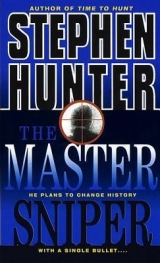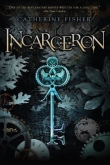
Текст книги "The Master Sniper"
Автор книги: Stephen Hunter
сообщить о нарушении
Текущая страница: 4 (всего у книги 22 страниц)
5
Vollmerhausen not only knew that it wasn’t his fault the prisoner had escaped, he knew whose fault it was. It was Captain Schaeffer’s fault. The man was incompetent. Schaeffer was involved in most things that went wrong at Anlage Elf. He’d seen the type before, a real SS fanatic, sullen and stupid, a brutal, suspicious Nazi peasant. Vollmerhausen had explained this very carefully to anybody who cared to listen, though not many of them did.
Now he was going to explain it to Repp.
“If,” he began, “if Captain Schaeffer’s men had been adequately trained, had reacted quickly, had treated this whole enterprise as something other than a holiday rest camp, then the prisoner could never have escaped. Instead they blunder about like comedians in a farce, shooting at each other, screaming, turning on lights, hooting and tooting. A disaster. I thought the Waffen SS, especially the famed Totenkopfdivision, had a reputation for efficiency. Why, the most inept conscriptees—old men and youngsters—could have performed better.” He sat back smugly. He’d really told them. He’d really let them have it.
Repp sat, toying with something at his desk. He did not appear particularly impressed. He certainly could be a cold chap.
But Schaeffer, there too, rose to his own defense.
“If,” he replied, talking straight to Repp, “there had been no”—he pronounced the next words with special precision, knowing how they hurt—“machine failure, if Herr Ingenieur-Doktor had been able to get his gadget to do its job—”
Gadget?
“Slander! Slander! I will not be slandered! I will not be slandered.” He rose, red-faced, from the chair.
Repp waved him down.
“So that the Obersturmbannführer had been able to take out his targets as the mission specifications call for—”
“There was no machine failure,” screamed Vollmerhausen hysterically. He was always being slandered, lied about. He knew people called him a kike behind his back. “I deny, deny, deny. We checked the equipment until we were blue in the face. It had integrity. Integrity. Yes, problems, we work around the clock, the Waffen SS should work half so hard, problems with weight, but the machine works. Vampir works.”
“The fact remains,” insisted the young captain—some men just could not accept defeat gracefully—“the fact remains, and no Yid argument is going to change it, that Vampir displayed twenty-five targets and there were twenty-six subhumans out there.”
It was obvious. “He slipped away before, don’t you see?” said Vollmerhausen. “He slipped out on your men before. I’m told he was a Jew, an educated fellow. He must have realized something was up and in the moments—”
“He was seen leaving the field, Herr Ingenieur-Doktor,” Repp said quietly. “And fired upon.”
“Yes, well,” Vollmerhausen sputtered, “he’d obviously, well, it’s clear that he separated himself before and so he wasn’t within the range of the mechanism.”
“Herr Obersturmbannführer, the men swear he was standing among the corpses.”
“The main question must be,” Vollmerhausen bellowed, cork-screwing insanely out of his seat, “why wasn’t the area fenced? My people slave into the night over Vampir, yet the Waffen SS is unable to construct a simple fence to hold a Jew in.”
“All right, Herr Ingenieur-Doktor,” said Repp.
“A simple fence to stop a Jew who—”
Repp said, “Please.”
Vollmerhausen had several points yet to make and he’d just thought of five or six of them when Repp’s stare fell across him. Something quite frosty in it. Extraordinary. The eyes cool, almost blank. The demeanor so perfectly calm, almost unnaturally calm. Repp had an incredible talent for stillness.
“I was simply—but no matter,” Vollmerhausen said.
“Thank you,” said Repp.
Another silence. Repp was masterful with silences, and he let this one drag on for several seconds. The air in the room was dead. Vollmerhausen shifted in his chair uneasily. Repp kept it so hot in here; in the corner the stove blazed away merrily. Repp, in faded camouflages, made them wait while he took out and, with elaborate ceremony, lit one of those Russian cigarettes he smoked.
Then finally he said, “Of the Jew, I have decided to let the matter drop. He’s somewhere in the forest, dead. They are not a hearty, physical race. They have no will to survive. Doom is their natural fate, and in the forest he’ll locate his own quickly. Therefore, I’m recalling the patrols.”
“Yes, Herr Obersturmbannführer,” said Captain Schaeffer. “Immediately.”
“Good. Now as for Vampir.” He turned to Vollmerhausen.
Vollmerhausen licked his lips. They were dry. His mouth was dry. He returned to a familiar, discomfiting litany: What am I doing here, locked up in a wild forest with SS lunatics? It was a long way from the WaPrüf 2 testing ground outside Berlin.
“As for Vampir, I’m afraid I must require another test, Herr Ingenieur-Doktor.”
Vollmerhausen swallowed. So that was it, then. Another load of Jews would be brought in, fattened up, shot down.
“More prisoners, Herr Obersturmbannführer?” he asked.
“That’s all finished, I’m afraid,” said Repp. “Which I’m sure makes you happy, Herr Ingenieur-Doktor.”
“It was unpleasant, yes, killing—”
“You must have a hard heart for these hard times,” said Repp. “You’d lose your uneasiness around death in a day in the East. But the Reichsführer informs me that the camps are no longer in the disposal business.”
“Animals, then,” said Vollmerhausen. “Pigs would do it. Or cows. About the—”
“I think not. Vampir must locate people, not animals, at four hundred meters’ range. And it must not weigh more than forty kilos. Those are the limits.”
Vollmerhausen moaned. Back to weight again. “I don’t know where I’m going to get ten more kilos. We’ve taken off all the insulation, we’ve got the lead sulfide down to a minimum without sacrificing resolution.” He looked desperate. “It’s that damn battery.”
“I’m sure you’ll find a way. After all, you’ve got the best men and equipment in the Reich. Far better than up at Kummersdorf.” As he spoke he’d begun to tinker again with a piece of metal or something on his desk, an innocent, entirely reflexive habit.
“We’ve tried everything. A smaller battery won’t put out the necessary current. A—”
“I’m sure a great miracle will happen here,” Repp said, taking great pleasure in the phrase.
Vollmerhausen, fascinated, could see the thing he worked in his fingers. It was a small black cube, metallic, with a spindle through it. But that’s all.
“Miracles cannot be requisitioned like machine pistols, Herr Obersturmbannführer.”
“You’ll do your best, I’m certain.”
“Of course, sir. But forty kilos is so little.”
“I just want to explain the importance here. I want to emphasize it. Our actions are only part of a larger campaign, involving agents in other countries even. Still, we are the most important; we are the fulcrum. Do you understand? Great and heavy responsibilities have descended upon us. This is a privilege rarely given soldiers. Think about it.”
He paused, to let the grave information sink in.
“And so for the test,” he said.
“Yes, Herr Obersturmbannführer,” Vollmerhausen said.
“I think I’ve found an unlimited supply of targets for you. A whole world full of targets. I’ve just had word from Berlin. One hundred miles north of here, the Americans have crossed the Rhine. They’re on our soil, Herr Ingenieur-Doktor. It seems that I must demand that you quickly find a way to knock those ten kilos off Vampir. And then you and I are going hunting.”
The asshead Schaeffer snickered.
Repp was smiling.
After they were gone, Repp reached into his desk and removed a silver flask. He was not a drinking fellow by habit but this night he felt a need. He unscrewed the cap and poured a few ounces of schnapps into a glass, and sipped it. He savored the fiery fluid.
The hour was late, time was slipping away, time, time, time the real enemy. Pressures from Berlin were mounting, that crazy goose the Reichsführer himself calling twice a day, babbling of what his astrologer and his masseur and his secretary and the little birdies in the sky were telling him. What had General Haussner said? “He has both feet planted firmly three feet above the ground.” Something like that.
Repp first met the Reichsführer in the 1942 season in Berlin, shortly after Demyansk, when he was the hero of the hour. Himmler had worn cologne that smelled like mashed plums and wanted to know about Repp’s ancestors.
Repp knew what to say.
“Common people, Reichsführer.”
“Very good. Our strength, the common people. Our mystic bond with the soil, the earth.” These words were delivered with unblinking sincerity in the middle of an opulent party in an industrialist’s mansion. Beautiful women swirled about—Margareta was one, he remembered. The room was filled with warmth and light. Sex was in the air and wealth and power and not seventy-two hours earlier Repp had been in the tower.
“Yes, the people,” the Reichsführer had said. He looked like an eggplant wearing glasses.
But Repp didn’t want to think about the Reichsführer right now. He took another sip of the schnapps and called Margareta up into his mind.
She’d been so beautiful that year. He was not moved by many things but he’d allowed himself to be moved by her. How had she ended up there? Oh, yes, she’d come with some theatrical people. He’d seen her before, back when he was a young lieutenant and too frightened to speak. But this time he walked up boldly and took her hand. He saw her eyes go to the Iron Cross he now wore.
“I’m Repp,” he said, bowing slightly.
“At least you didn’t snap your heels together like so many of them.”
He smiled. “I’ve been told anything in the city is mine. I choose you.”
“They meant hotel rooms. Restaurant tables. Seats at the opera. Invitations to parties.”
“But I don’t want those things. I want you.”
“You’re very forward. You’re the fellow in the tower, is that it? It seems I read something.”
“Three days ago I killed three hundred and forty-five Russians in the span of eight hours. Now doesn’t that make me rather special?”
“Yes, I suppose it does.”
“May I present you to the Reichsführer? He’s now a patron of mine, I believe.”
“I know him. He’s dreadful.”
“A little pig. But a powerful patron. Come, let’s leave. I was in a very pleasant restaurant last night. I believe they’ll treat me nicely if I return. I even have a car and driver.”
“My first lover was killed in Poland. My next died in an air fight over London. Another was captured in the Western Desert.”
“Nothing will happen to me. I promise. Come, let’s go.”
She looked at him narrowly. “I came with a fellow, you know.”
“A general in the Waffen SS?”
“No, an actor.”
“Then he’s nothing. Please. I insist.”
She’d paused just a second, then said, “All right. But, please. No talk of war, Captain Repp.”
Pleasant. Yes, pleasant.
Repp finished the schnapps. He was tempted to take another, but a principle of his was to never yield to temptations.
He knew the Reichsführer could call at any moment; and he knew he needed his strength for what lay ahead.
He sealed the bottle.
6
Susan and Leets were wedged tight against the Claridge bar. It was late on a Friday night in mid-March, wall-to-wall uniforms, no V-2’s had fallen for a couple of days, and after a lot of trying he’d finally talked her into an actual date. They’d had dinner at the Hungaria and, on Roger’s recommendation, had dropped by this bright spot, where all the London beauties and big shots were said to camp out. So far Susan had seen two movie stars and a famous radio broadcaster. Leets had noticed instead other OSS officers in the smoky crowd and had fancied himself already slighted a couple of times, and once had even made a move toward one snide aristocratic profile, but Susan had tugged him back.
“No trouble. Remember. You promised.”
“Yeah, yeah,” he mumbled.
Now, several whiskies down him, he was feeling sweeter, the friend to all men. He had her to himself: no Phil, no Jews.
“Barkeep,” he hailed, trolling in one of the red-jacketed boys behind the mahogany bar, “two here, old bun.”
“No wonder they hate us,” she said.
Around them the talk was of the new offensive. Beyond the Rhine! It would be over by the blooming of the flowers, the coming of spring. This optimism had the effect of depressing Leets.
“You’re supposed to be enjoying yourself,” she said. “For God’s sakes, smile a little. Relax.”
“You’re damned cheerful,” he said with surprise. It was true. The whole evening, she’d bubbled. She was especially beautiful, even in the severe cut of the brown uniform; some women looked good in anything. But it was something else. Susan seemed to be her old self: sly, mocking, mildly sarcastic, full of mischief.
“You’ve decided to make a career of Army nursing. Congrats!” he said.
She laughed.
“You’re divorcing Phil. Right? Am I right?”
Again, laughter. “It’s a long story,” she said. “A long story.”
But before she could tell it, an elegant Brit voice crooned to them. “Darlings.”
It was Leets’s turn to make a face.
But Tony came ahead confidently, until he seemed to embrace the two Americans.
“One more of what these chaps are having,” Tony commanded the barman, and turned to press an icy smile on Leets.
“Sir,” Leets said evenly.
“Rather a long Thursday, eh?” Tony asked.
Leets didn’t say a thing.
“What, three, four hours? Or was it five?”
“Jim? What—” Susan said.
Leets looked bleakly off into the crowd.
“The captain had a rough go of it, I hear. Trying to get in to see—ah, who was it this time? Yours or ours?”
“Yours,” Leets finally admitted.
“Of course. Knew it all the time. Major General Sir Colin Gubbins, was it not?”
“Yes.”
“Thought so. Head of SOE. Pity he couldn’t see you.”
“I’m on the list for Monday, the girl said.”
“I’ll put in a good word for you tomorrow at lunch,” Tony said, smiling maliciously.
“You bastard,” Leets said.
“Now stop that kind of talk,” Susan commanded.
“Susan, would you care to accompany me to lunch with General Sir Colin Gubbins tomor—”
“Goddamn it, Major, knock it off,” Leets said.
Tony laughed. “You’re getting a rather peculiar reputation in certain circles,” he cautioned. “You know, he tells anyone this mad scheme he’s dreamed up. Jerry snipers. Quite strange.”
Leets now felt fully miserable.
“It wouldn’t hurt a bit to listen to him,” Susan said. “You people have been told things all during the war you wouldn’t listen to. You never listen until it’s too late.”
Tony stepped back, made a big show of shock. “Dear girl,” he said theatrically, “of course we make mistakes. Of course we’re old fuddy-duddies. That’s what we’re paid for. Think how dangerous we’d be if we knew what we were doing.” He threw back his head and brayed.
Leets realized the man was quite drunk and beyond caring what he said, and to whom. But, surprisingly, there seemed to be in his act some affection for the miserable American and his girl.
“Listen, I know where there are some marvelous gatherings tonight. Care to come along? Really, I can offer Indian nabobs, Communist poets, homosexual generals, Egyptian white slavers. The relics of our late empire. It’s quite a show. Do come.”
“Thanks, Major,” Leets said. “I’d really rather—”
“Tony. Tony. I’ve taken to the American habit. You call me Tony and I’ll call you Jim. First names are such fun.”
“Major, I—”
“Jim, it might be kind of fun,” Susan said.
“What the hell,” Leets said.
Presently, they found themselves in a cavernous flat in a splendidly fashionable section of London, along with a whole zoo of curiosities from all the friendly nations of World War II. Leets, pinned in a corner of the room, drank someone’s wonderful whisky and exchanged primitive pleasantries with a Greek diplomat, while he watched as across the room Susan deflected, in rapid succession, an RAF group captain, a young dandy in a suit and tie, and a huge Russian in some sort of Ruritanian clown suit.
“She’s smashing,” Tony said to him.
“Yes, she’s fine, just fine,” Leets agreed.
“Is good very, no?” the Greek said, somewhat confusingly to Leets, but he merely nodded, as though he understood.
But after a while he went and got her, fighting his way through the mob.
“Hello, it’s me,” he said.
“Oh, Jim, isn’t it wonderful? It’s so interesting,” she said, beaming.
“It’s just a party, for Christ’s sake,” he said.
“Darling, the most wonderful thing happened today. I can’t wait to tell you about it.”
“So tell.”
“I say, guess who’s here now?” Tony said suddenly, at his ear.
“It’s Roger,” shrieked Susan. “My God, look who he’s got with him!”
“Indeed,” said Tony. “An authentic Great Man! That is the hairy-chested novel writer who kills animals for amusement, is it not? Thought so.”
“All we need is Phil,” said Susan.
“Phil who?” said Leets, as his young sergeant drew near, his eyes crazy with glee, pulling in drunken tow the great writer himself. The two of them weaved brokenly across the crowded floor, Roger guiding the blandly smiling bigger man along. The fellow wore some kind of safari-inspired variation on the Air Corps uniform, open wide at the collar so that a thatch of iron-gray hair unfurled.
“The famous chest, for all to see,” said Tony.
The writer had a pugnacious mustache and steel-frame glasses. He was big, Leets could see, big enough for Big Ten ball, but now he had a kind of drunken, horny benevolence, dispensing good fortune on all who passed before him. Several times in his journey, the writer stopped, as though to establish camp, but at each spot, Roger’d give a yank and unstick the fellow and pull him yet closer.
“Mr. Hem,” Roger declared when he got the big fellow near enough, “Mr. Hem, I want ya ta meet the two best friggin’ officers in World War Two.”
“Dr. Hemorrhoid, the poor man’s piles,” the writer said, extending a paw.
Leets shook it.
“I adored The Sun Actually Rises” said Tony. “Really your best. So feminine. So wonderfully feminine. Delicate, pastel. As though written by a very sweet lady.”
The writer grinned drunkenly. “The Brits all hate me,” he explained to Susan. “But I don’t let it bother me. What the hell, Major, go ahead and hate me. It’s your bloody country, you can hate anybody you goddamnwellfucking choose. Nurse, you’re beautiful.”
“She’s married,” Leets said.
“Easy, Captain, I’m not moving in. Easy. You guys, do the fighting, you have my respect. No problems, no sweat. Nurse, you are truly beautiful. Are you married to this fellow?”
Susan giggled.
“She’s married to a guy on a ship. In the Pacific,” said Rog.
“My, my,” said the writer.
“Hem, there’s some people over here,” Rog said.
“Not so fast, Junior. This looks like a most promising engagement,” the writer said, grinning lustfully, putting a hand on Susan’s shoulder.
“Hey, pal,” said Leets.
“No fighting,” Susan said. “I hate fighting. Mr. Hemingway, please take your hand off my shoulder.”
“Darling, I’ll put my hand anywhere you tell me to put it,” Hemingway said, removing his hand.
“Put it up your ass,” said Leets.
“Captain, really, I have nothing but respect. You’re the guy putting the hun in his grave. Putting Jerry to ground, eh, Maj? Any day now. Any bloody day. Junior, how ’bout getting Papa a drink? A couple fingers whisky. No ice. Warm and smooth.”
“War is hell,” Leets said.
“How many Krauts you kill?” Hemingway asked Leets.
Leets said nothing.
“Huh, sonny? Fifty? A hundred? Two thousand?”
“This is a terrible conversation,” Susan said. “Jim, let’s get out of here.”
“How many, Cap? Many as the major here? Bet he’s killed jillions. That Brit special-ops group, goes behind the lines. Gets ’em with knives, fucking knives, right in the gizzard. Blood all over everything. But how many, Captain? Huh?”
Leets said he didn’t know, but not many. “You just fired at vehicles,” he explained, “until they exploded. So there was no sense of killing.”
“Could we change the subject, please,” Susan said. “All this talk of killing is giving me a headache.”
“There is no hunting like the hunting of man, and those who have hunted armed men long enough and liked it, never care for anything else thereafter,” recited Hemingway.
“I wouldn’t know about that,” said Leets. He remembered bitterly: the tracers spraying through the grass, kicking spurts out of the earth, the sounds of the STG-44’s, the universe-shattering detonations of the 75’s on the Panzers. “It was just a fucking mess. It wasn’t like hunting at all.”
“Really, I’m not going to let this nonsense ruin my evening. Come on, Jim, let’s get out of here,” Susan said, and hauled him away.
They walked the cold, wet London streets, in the hours near dawn. An icy light began to seep over the horizon, above the blank rows of buildings that formed the walls of their particular corridor. Again, fog. The streets were empty now, except for occasional cruising jeeps of MP’s and now and then a single black taxi.
“They say at High Blitz Hitler never even stopped the cabs,” Leets said abstractedly.
“Do you believe in miracles?” Susan, who’d been silent for a while, suddenly said.
Leets considered. Then he said, “No.”
“I don’t either,” she said. “Because a miracle has to be sheer luck. But I believe certain things are meant to happen. Meant, planned, predestined.”
“Our meeting again in the hospital?” he said, only half a joke.
“No, this is serious,” she said.
He looked at her. How she’d changed!
“You’re generating enough heat to light this quarter of the city. I hope there’re no Kraut planes up there.”
“Do you want to hear about this, or not?”
“Of course I do,” he said.
“Oh, Jim, I’m sorry,” she said. “I know you’re feeling awful. Outhwaithe was very cruel.”
“Outhwaithe I can handle. I just know something and I can’t get anyone to believe me. But don’t let my troubles wreck your party. Really, Susan. I’m very happy for you. Please, tell me all about it.”
“We have one. Finally. One got out. A miracle.”
“Have one what? What are you—”
“A witness.”
“I don’t—”
“From the camps. An incredible story. But finally, now, in March of 1945, a man has reached the West who was in a place called Auschwitz. In Poland. A murder camp.”
“Susan, you hear all kinds of—”
“No. He was there. He identified pictures. He described the locations, the plants, the processes. It all jibes with reports we’ve been getting. It’s all true. And now we can prove it. He’s all they have. The Jews of the East. He’s their testament, their witness. Their voice, finally. It’s very moving. I find it—”
“Now just a minute. You say this camp was in Poland? Now, how the hell did this guy make it across Poland and Germany to us? Really, that’s a little hard to believe. It all sounds to me like some kind of story.”
“The Germans moved him to some special camp in a forest in Germany. It’s a funny story. It makes no sense at all. They moved him there with a bunch of other people, and fed them—fattened them up, almost like pigs. Then one night they took him to a field and …”
“It was some kind of execution?”
“A test. He said it was a test.”
And Susan told Leets the story of Shmuel.
And after a while Leets began to listen with great intensity.




![Книга Make Winning a Habit [с таблицами] автора Rick Page](http://itexts.net/files/books/110/no-cover.jpg)

